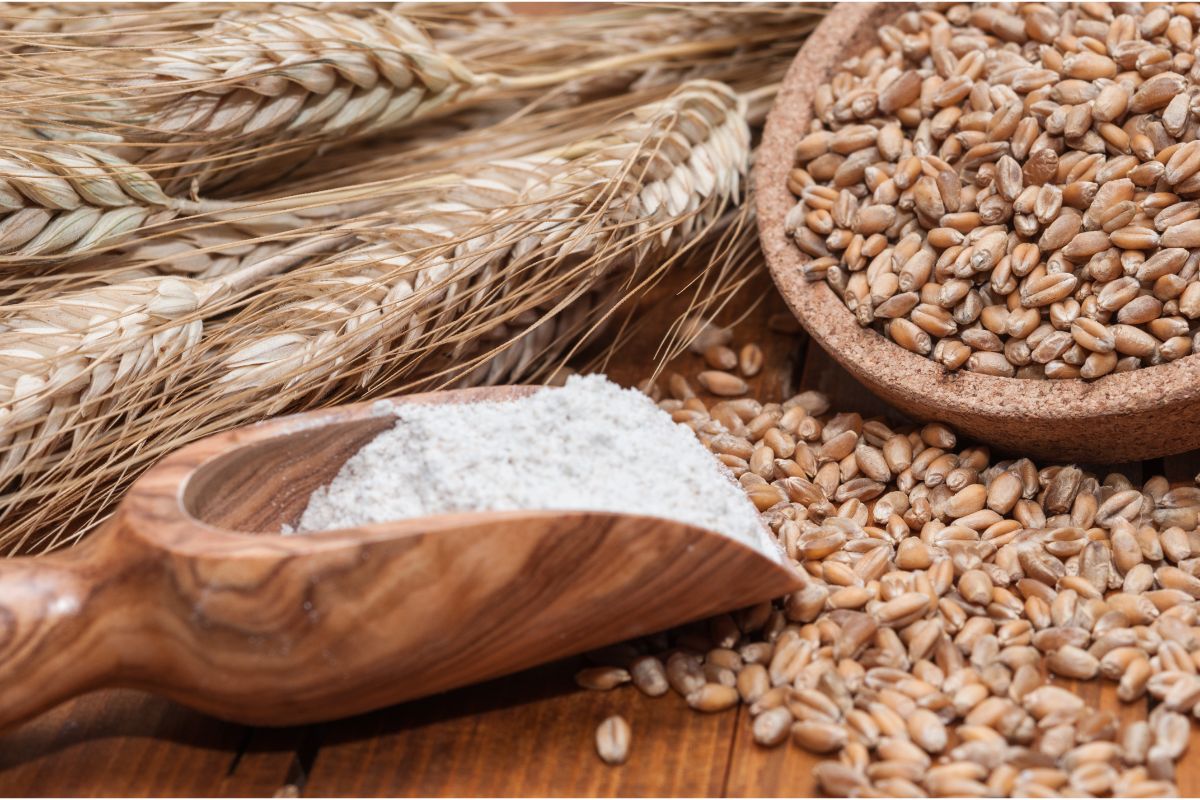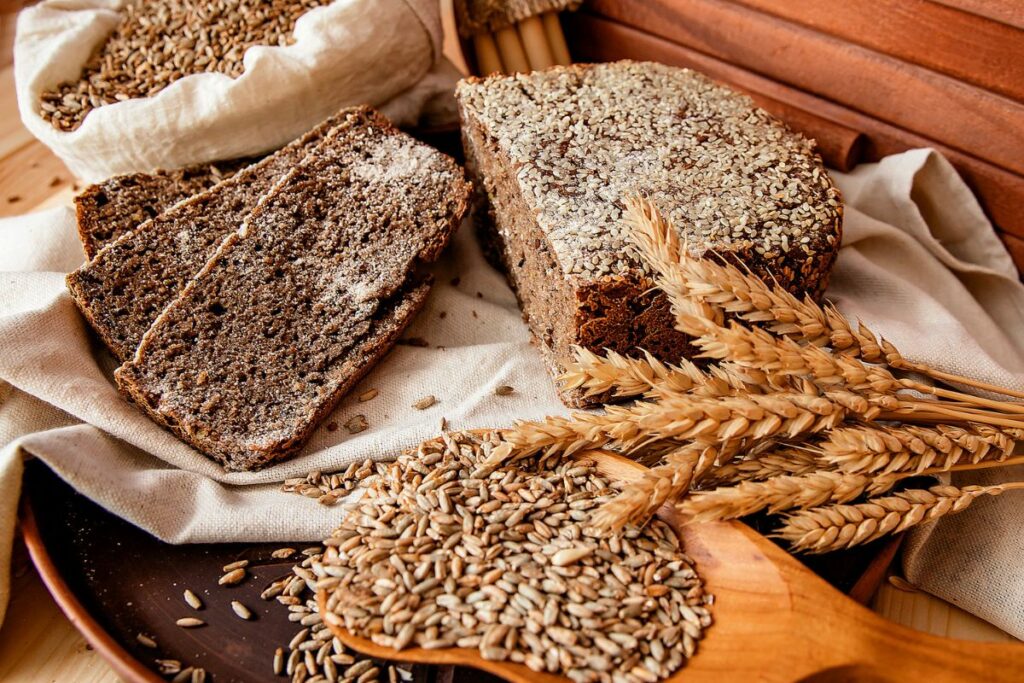In the world of cereals, rye is often touted as one of the healthiest options. It’s high in important nutrients and studies have shown that it can have many benefits, specifically for digestive health and when it comes to combating inflammation.
Something that isn’t talked about as often, however, is the fact that rye has the potential to trigger allergic reactions and a variety of other side effects which can be unpleasant at best and dangerous at worst.
This article isn’t intended to discourage anyone from consuming rye. As we said, rye is very nutritious and beneficial in a lot of ways.
However, it’s important to be aware of potential side effects so you can make the best dietary choices for your body and be informed in case of adverse effects.
Today, we’re going to cover the nutritional basics of this cereal, including its nutritional benefits, before outlining the side effects you might want to look out for when introducing rye to your diet.
What Is Rye?
If you’re sitting here thinking ‘what on earth is rye?’, don’t worry, we’re going to cover that first. Rye is a cereal, and in fact, it’s one of the most-grown cereals worldwide. Out of all the cereals consumed around the world, rye is in the top 5.
You’ve probably heard of barley, and you’ve certainly heard of wheat. Well, rye is quite similar to these two grains. It can be used in its flour form to make delicious bread and other baked goods, but you might even find it in alcoholic form (rye whiskey).
Some people like to eat rye berries either cooked or raw, but one of the most common ways to enjoy rye is in the form of rolled oats at breakfast.
Why Do People Eat Rye? (The Benefits)
This article is mainly about the potential side effects of rye, but as we mentioned earlier, there are plenty of good reasons to introduce rye into your diet.
It has a lot of health benefits, and just because it has the potential to produce some side effects doesn’t mean everyone should avoid it.
Before we get into the adverse effects that can result from rye consumption, let’s take a look at some of the dietary benefits of rye:
Rye is naturally low in fat, especially saturated fat. In fact, in 100 grams of the cereal, you’ll only find 1.6 grams of total fat, only 0.2 grams of which is saturated.
There’s no cholesterol or trans fat in rye, and its sodium content is also low at just 2 mg. For a cereal, its sugar content is also very low, with just 1 gram per serving out of 76 total grams of carbohydrates.
If you’re looking for an easy way to incorporate more fiber into your diet, rye is a good choice. Each 100 gram serving contains 15 grams of fiber and an impressive 510 mg of potassium, which is an essential nutrient that many people don’t get enough of.
A serving of rye will also provide you with 10 grams of protein and 14% of your daily iron. You’ll also be getting 27% of the magnesium you need in a day, plus 2% of your recommended calcium.
The nutritional content of rye means it provides a great many health benefits. It’s heart-healthy and has anti-inflammatory properties that may reduce the risk of some cancers.
The protein content of rye can help to build muscle mass by promoting growth and repair, and the fiber helps with digestive function.
Because rye is low in sugar, it’s a good choice of cereal for those with diabetes, and regular rye consumption has even been linked to the prevention of gallstones, asthma, and high blood pressure.
Potential Side Effects Of Rye
As you can see from the passage above, rye is overall a very healthy cereal that can do a lot for your overall health. So, what are these side effects we’ve been talking about?

Allergic Reactions
An increasing number of people are finding out that they are allergic or intolerant to gluten. Because rye contains gluten, it may trigger such allergies or intolerances.
Just some of the symptoms of a gluten intolerance include digestive issues including stomach pains, gas, indigestion, vomiting, and constipation.
These problems over a long period of time can impact your body’s ability to absorb nutrients, leading to malnutrition.
Other ways an allergy or intolerance to gluten may present include rashes, fatigue, swelling of the extremities, tingling in the hands and feet, unexplained weight loss, and symptoms of anemia.
Over time, consuming gluten when your body can’t process it has even been linked to decreased fertility.
For this reason, if you know or suspect that you’re intolerant or allergic to gluten, you should avoid consuming any products containing rye.
Gas and Digestive Issues
It’s not just the gluten in rye that can cause digestive upset. We mentioned earlier that rye contains a lot of fiber, which many people find helps to improve digestion.
However, if your body is not used to the extra fiber, it can also result in unpleasant digestive symptoms.
Gas and bloating is one of the most common causes of consuming a lot of fiber that your body isn’t used to. You may also experience diarrhea and nausea in more extreme cases.
May Hinder Nutrient Absorption
As you can see from the nutritional profile earlier in this article, rye contains a lot of important nutrients.
However, something most people don’t realize is that rye also contains phytic acid, which is known to be an antinutrient.
An antinutrient is a substance that can stop vitamins and minerals from being properly absorbed by your body.
In the case of rye, the phytic acid can stop zinc and iron consumed around the same time from being absorbed properly.
Since iron deficiency can ultimately lead to symptoms such as fatigue, dizziness and chest pain as a result of anemia, this is not something to take lightly.
If you’re going to consume rye on a regular basis, make sure you’re getting enough zinc and iron in other meals throughout the day.
You should also look out for symptoms such as very cold hands and feet, fatigue, pale skin, feeling short of breath, lightheadedness, and an irregular heartbeat.
All of these can be symptoms of anemia, which will need to be treated using supplements and consuming more high-iron foods such as red meat and dark leafy greens.
You should also be alert for symptoms of a zinc deficiency which can present as hair loss, digestive upset, reduced appetite, problems with visions, and low immunity.
Final Thoughts
There’s no denying that rye has a range of nutritional benefits, and it’s ultimately a healthy cereal to have as part of your diet.
However, rye is not suitable for those who are allergic or intolerant to gluten. Additionally, the fiber in rye can cause some people to experience digestive problems such as bloating.
Because the cereal contains phytic acid, it prevents zinc and iron from being absorbed properly into the blood.
This means that rye could potentially cause a nutrient deficiency if iron and zinc are not being consumed in sufficient amounts as part of other meals throughout the day.








